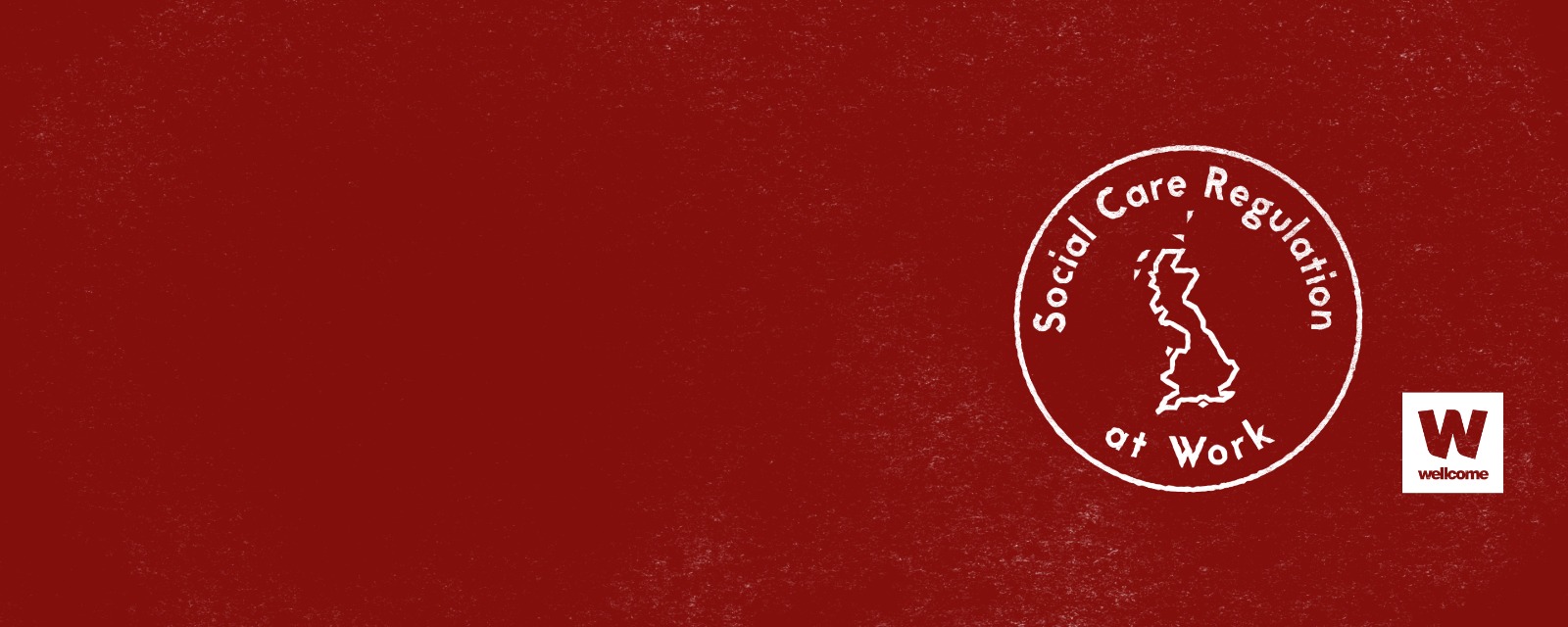UPDATE: Our latest report on lessons learned from the first wave of the Coronavirus in the UK, submitted to the UK Government Health and Social Care Committee, can be found here
The Social Care Regulation at Work research team is Professor Lydia Hayes, Dr Alison Tarrant, and Dr Hannah Walters; we are funded by the Welcome Trust and based in Glasgow, Cardiff and Kent. International evidence tells us that high quality care and support is provided by staff who feel secure in their jobs, are paid fairly, feel respected and are well trained. Our research speaks to the reality for care workers across the UK: their work is low paid, insecure, of low status and training is often inadequate. Amongst other things, our research will make recommendations about how the legal powers of the UK, Welsh and Scottish governments might be better used to regulate social care in ways that improve both the quality of care and support services, as well as the quality of care workers’ jobs.
To fix problems with care quality, the problem of low-quality terms and conditions of work in social care must be fixed too. England, Scotland and Wales do not currently have legal powers to make their own laws about employment standards because this type of law can only be made by the Westminster Parliament. However, the devolved nations do have responsibility for the regulation and oversight of social care provision and our research explores the different legal rules that apply in England, Scotland and Wales. We are identifying differences in the devolved regulation of social care and assessing how that regulation might have an indirect effect on the quality of care workers’ jobs. To properly understand the effects of law, our research goes beyond what the legal rules say on paper, to look at how those rules are understood, used and applied in practice – by regulators, providers, and care workers themselves.
Our focus is on six issues, each is fundamental to the quality of jobs and the quality of care and support:
- Low pay and insecurity of work
- Health and Safety
- Fit and Proper Persons
- Safeguarding
- Staffing Levels
- Training and Supervision
We are testing the hypothesis that regulatory systems that are designed to improve care, might also have the capacity to drive up terms and conditions for care workers. If care work can be more highly valued, and the problem of poor-quality jobs can be addressed, the lives of hundreds of thousands of care workers and the people who rely of them for care and support would be considerably improved.
The initial stages of our research were conducted as the Coronavirus pandemic began to impact harshly in care settings across the UK. We partnered with trade unions UNISON and GMB, and we analysed survey data to assess the views of 2,600 care workers about health and safety in the initial stages of the pandemic. Their data revealed many breaches of health and safety laws as well as breaches of care standards. Care workers said that a lack of necessary Personal Protection Equipment (PPE) at work showed that they were given no respect. We found that 8 in 10 care workers expressing a view believed that they would not receive any wages if they needed to self-isolate (for up to two weeks according to official guidance). Many had a considerable fear of poverty and said they would not be able to afford to self-isolate. A lack of occupational sick pay was effectively forcing care workers to continue working when they were ill. This is one of several factors that increased the risk of coronavirus transmission between care settings and the community.
On 14th April we published our first report, based on this data: Care workers’ perceptions of health and safety issues in social care during the COVID-19 pandemic. L. Hayes, A. Tarrant, H.Walters, University of Kent (2020).
In the report we make two recommendations. Firstly, we call on national and local governments to appoint care workers to problem-solving roles in respect of the use and distribution of PPE and the allocation of resources, including staffing resources. Secondly, we call on the UK government to take action to ensure care workers are paid their normal wages when they are self-isolating.
The finding on sick pay is an example of how our research connects care standards regulation to matters of employment. We have shown that occupational sick pay (an employment issue) is critical to the quality of care and the safety of people in need of care and support. However, the legal rules that are designed to ensure safe care in England, Scotland and Wales are not currently ensuring that occupational sick pay is available to all care workers. We are undertaking further research to understand how regulations and legal rules are understood by care workers, employers, care inspectors and commissioners of care. We want to know why it is that the importance of employment issues like occupational sick pay is overlooked in the implementation of legal standards about social care.
To keep up to date with our project and how our research is developing, follow us on Twitter. If you would like to know more, or are interested in contributing to our study, email Professor Lydia Hayes: l.j.hayes@kent.ac.uk
If you use any material from these web pages, we suggest this is cited as follows:
Hayes, L., Tarrant, A. and Walters, H. (2020) Social Care Regulation at Work: Health & Safety: Wales. University of Kent. [Viewed date]. Available at: <https://research.kent.ac.uk/social-care-regulation-at-work/>
This website is for informational purposes only. It does not constitute any form of legal advice and should not be treated as or relied upon for legal advice. If you require legal advice you should contact a qualified legal practitioner.
This work is supported by the Wellcome Trust. Grant Number: 210343/Z/18/Z
